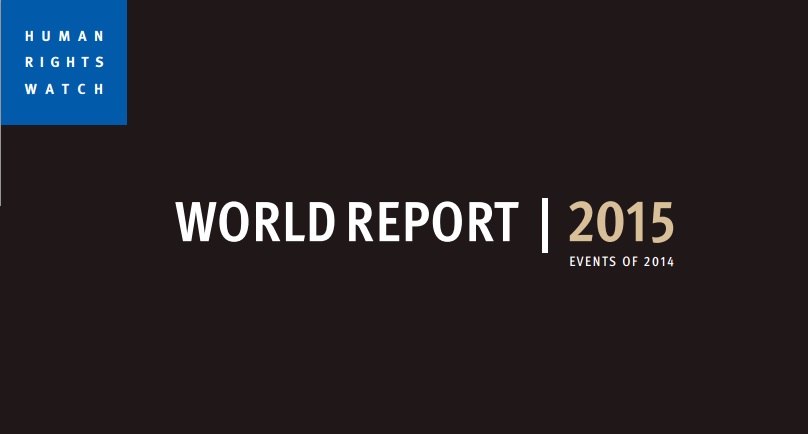by Allanah Leahy – EM TV Online
Gender inequality, corruption and police brutality are among the key issues Papua New Guinea faces today, Human Rights Watch’s 2015 World Report states.
The report points out that an estimated 70 per cent of women in Papua New Guinea will experience rape or assault, in their lifetime.
Gender inequality issues were rife in 2014, despite the Family Protection Act (2013), and increased efforts by concerned agencies to drive the awareness of gender-based violence, gender equality and other development issues in the country.
In November last year, prominent PNG women’s rights group, Coalition for Change pushed further for change, encouraging men to take part and the corporate sector to address gender discrimination in the workplace. Lesieli Taviri, chairlady of Coalition for Change, said:
“How can the economy grow if businesses are not growing to provide more opportunities for people? How will PNG advance? The most important thing to realise is that businesses can make a difference.
“Publicly identifying gender-based violence as a workplace issue is a critical first step.”
The 2015 World Report points out that existing laws have yet to effectively improve gender inequality, citing a lack of full government commitment, resources, police protection and ineffectual systems as contributory to extremely low arrest and conviction rates.
Oxfam Australia last year cited a need for more data and interaction with local authorities, institutions and the justice system to understand, and combat the issue more effectively.
The report touched on PNG’s political instability last year, including the arrest warrant filed by the police fraud squad against Prime Minister Peter O&rsquO’Neill for his role in overseeing and allegedly signing off payments to a law firm.
The report also pinpoints the subsequent sacking of then-attorney general Kerenga Kua, then-deputy commissioner Simon Kauba, as well as the disbandment of anti-corruption body Taskforce Sweep, as evidential hindrances in stemming white collar crime.
Regarding police brutality, the report points out that physical and sexual abuse inflicted by police officers is continuously widespread. Last week, five vendors were sexually assaulted by 10 intoxicated members of the police force.
Although ranked 44th worldwide in Reporters Without Borders’ Press Freedom Index, PNG felt the boundaries of free media in June last year, when an EM TV cameraman and reporter covering a police brutality case were assaulted and forced to delete all footage and notes by policemen.
The latest alleged case of police brutality, although still pending further investigation, is the shooting of two men of Hanuabada origin. The people of Hanuabada have since expressed their lack of confidence in police.
Despite this, in December last year, the six-month training period for police officers at the Bomana training college was dropped to four months in an effort to reach the government’s request of 10,000 recruits by 2017.
The report also touches on PNG’s extractive industries and the human rights and environmental issues it currently faces.
It comments that although the LNG project, with its transformative potential, could ultimately double PNG’s economy, there are serious concerns as to whether ordinary citizens will reap benefits from it.
This, according to the report, ‘is due to corruption in key government institutions’ and a ‘questionable’ capacity in deploying basic government services. The report touches on other issues and may be read here.


